Search Results for: Vertebrates
Skip to resultsCan’t find what you’re looking for? Visit our FAQ page.
1,543 results for: Vertebrates
-
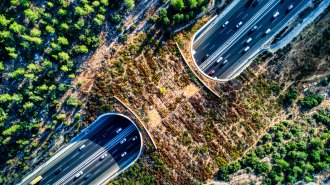 Ecosystems
Ecosystems‘Crossings’ explores the science of road ecology
Ben Goldfarb talks about his new book, which looks at the science that’s helping to prevent animals from becoming roadkill.
By Amanda Heidt -
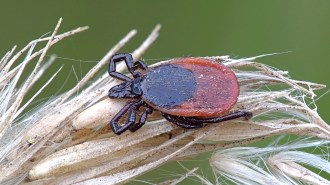 Animals
AnimalsStatic electricity can pull ticks on to their hosts
Ticks brought near objects with a static charge frequently get pulled to those surfaces, a new study finds, suggesting one way the bugs find hosts.
By Soumya Sagar -
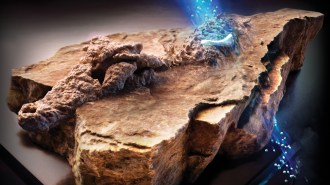 Physics
PhysicsHow neutron imaging uncovers hidden secrets of fossils and artifacts
The technique can complement X-ray scanning and other tools to uncover details of dinosaur fossils, mummies and more.
-
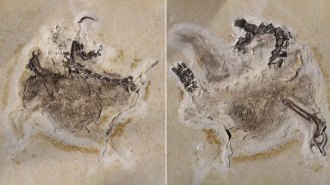 Paleontology
PaleontologyPaleontology has a ‘parachute science’ problem. Here’s how it plays out in 3 nations
When researchers study fossils from lower-income countries, they often engage in dubious or illegal practices that can stifle science.
-
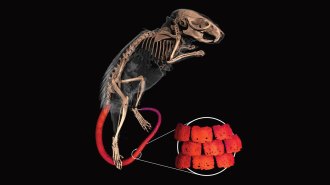 Life
LifeSpiny mice have armadillo-like armor in their tails
CT scans revealed the bony plates in the rodents’ tails. The hidden armor may protect against attacking predators or other spiny mice.
By Jake Buehler -
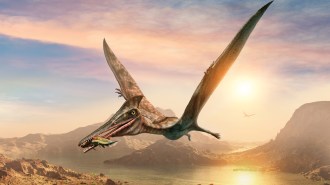
New discoveries are bringing the world of pterosaurs to life
The latest clues hint at where pterosaurs — the first vertebrates to fly — came from, how they evolved, what they ate and more.
By Sid Perkins -
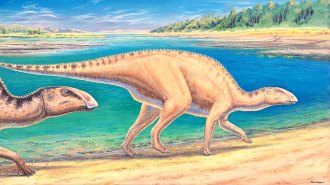 Life
LifeNew fossils from Patagonia may rewrite the history of duck-billed dinosaurs
New findings are adding a wrinkle to researchers’ understanding of how duck-billed dinosaurs conquered the Cretaceous world.
By Jake Buehler -
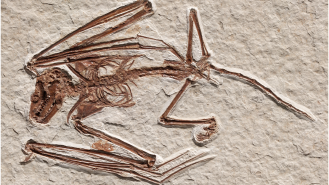 Paleontology
PaleontologyNewfound bat skeletons are the oldest on record
The newly identified species Icaronycteris gunnelli lived about 52.5 million years ago in what is now Wyoming and looked a lot like modern bats.
By Sid Perkins -
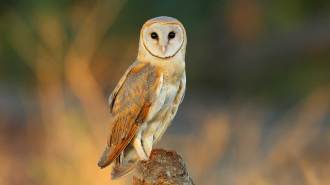 Animals
AnimalsVolcanic sulfur may make barn owls grow redder feathers
Barn owls on volcanic islands tend to have redder plumage than those on nonvolcanic islands, possibly due to an influx of sulfur in the environment.
By Jake Buehler -
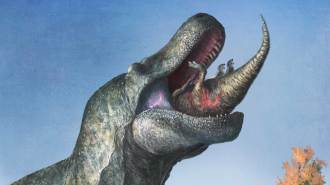 Life
LifeT. rex may have had lips like a modern lizard’s
Dinosaurs like Tyrannosaurus have long been portrayed as lipless, but new research suggests this wasn’t so.
By Jake Buehler -

-

Good with tools? You may be a cockatoo
Editor in chief Nancy Shute talks about smart animals, from tool-using cockatoos to "self-aware" fish.
By Nancy Shute